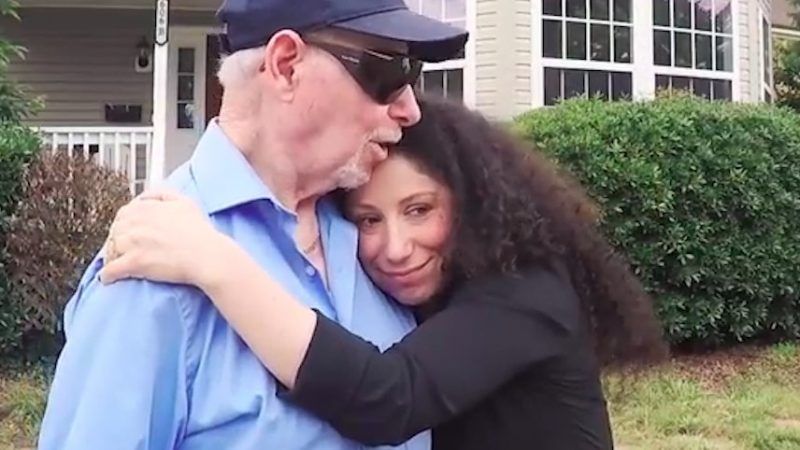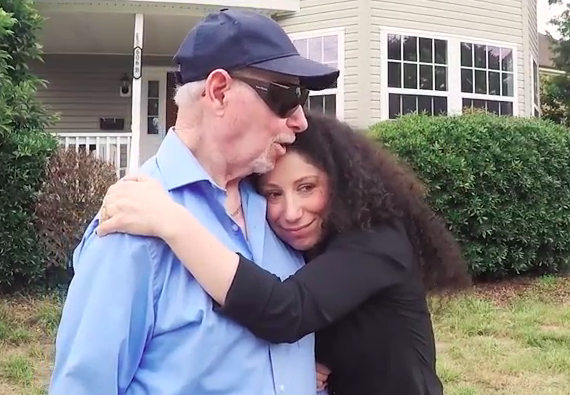Pressure Builds on Bureau of Prisons to Release Elderly and Sick Inmates
Religious institutions and conservative groups join criminal justice reformers in calling on BOP to reform compassionate release.


A coalition of political advocacy groups, criminal justice reformers, and religious organizations sent a letter Thursday to Federal Bureau of Prisons Director Mark Inch asking him to reform the bureau's compassionate release program.
Compassionate release was created by Congress in 1984 to provide an administrative mechanism for shortening the sentences of prisoners in "extraordinary and compelling" circumstances. Since then, BOP has used compassionate very infrequently and only for terminally ill prisoners. But even folks knocking on death's door have been denied early release, or died while waiting for an answer.
The letter campaign marks the latest major push in the last four years to get the BOP to help sick and elderly prisoners understand and apply for the program. The agency has ignored similar requests from the Justice Department Office of Inspector General and the U.S. Sentencing Commission. The BOP has also declined to explain to Congress or the public why compassionate release is so seldom used.
"The BOP should take steps immediately to ensure that all prisoners and their families are aware of the compassionate release program and its eligibility requirements," reads the letter, which is signed by the American Civil Liberties Union, the Association of Prosecuting Attorneys, the Church of Scientology, FreedomWorks, R Street Institute, Families Against Mandatory Minimums*, and more than a dozen other groups across the ideological spectrum.
"The Bureau should give clear guidance for submitting requests and commit to a meaningful and timely review of and response to requests. In addition, the BOP should make sure that all relevant staff, including medical care providers, case managers, and unit teams, are aware of the eligibility criteria."
In July, Sen. Richard Shelby (R-Ala.) added language to the 2018 appropriations bill requiring the BOP to inform the Senate how many compassionate release requests it granted in the last five years, how many it denied, and how many people died while waiting for an answer.
The DOJ Inspector General's Office and the U.S. Sentencing Commission have also called on the BOP to use the program more often due to the explosion of the BOP's elderly population and the fact that federal detention facilities were not designed to serve as nursing homes or hospitals.
As a result, sick prisoners receive inadequate medical care. One institution reviewed by the Inspector General's Office did not have enough medical staff to treat its sick population, nor enough correctional officers to lead off-site medical trips. The lack of staffing meant prisoners at the center who needed specialized treatment for cardiology, neurosurgery, pulmonology, and urology had to wait an average of 114 days to see a physician.
The OIG also reported that as of 2016, the BOP employed only 36 social workers for an inmate population of nearly 200,000 people, and that despite having an unprecedented number of wheelchair and walker-dependent inmates, the BOP has not conducted an accessibility review of its facilities in more than 20 years.
Many of the people serving decades-long sentences at the federal level are drug offenders. While these sentences are disproportionately long for people in their 20s, they are absurd for the elderly.
"We know that people age out of crime, especially violent crime," says Kevin Ring, president of Families Against Mandatory Minimums. "Compassionate release allows us to use that knowledge and to target expensive prison space for those who actually threaten public safety."
In addition to appealing directly to Inch, FAMM has also released a series of videos highlighting the kinds of cases the BOP either ignores or denies. Readers may find the case of Warren Rossin, who received a 20-year sentence for his involvement in a marijuana conspiracy only to require nearly a million dollars worth of medical care while incarcerated, to be especially illustrative:
*Disclosure: I served as the communications director for Families Against Mandatory Minimums from 2014-2016.


Show Comments (8)